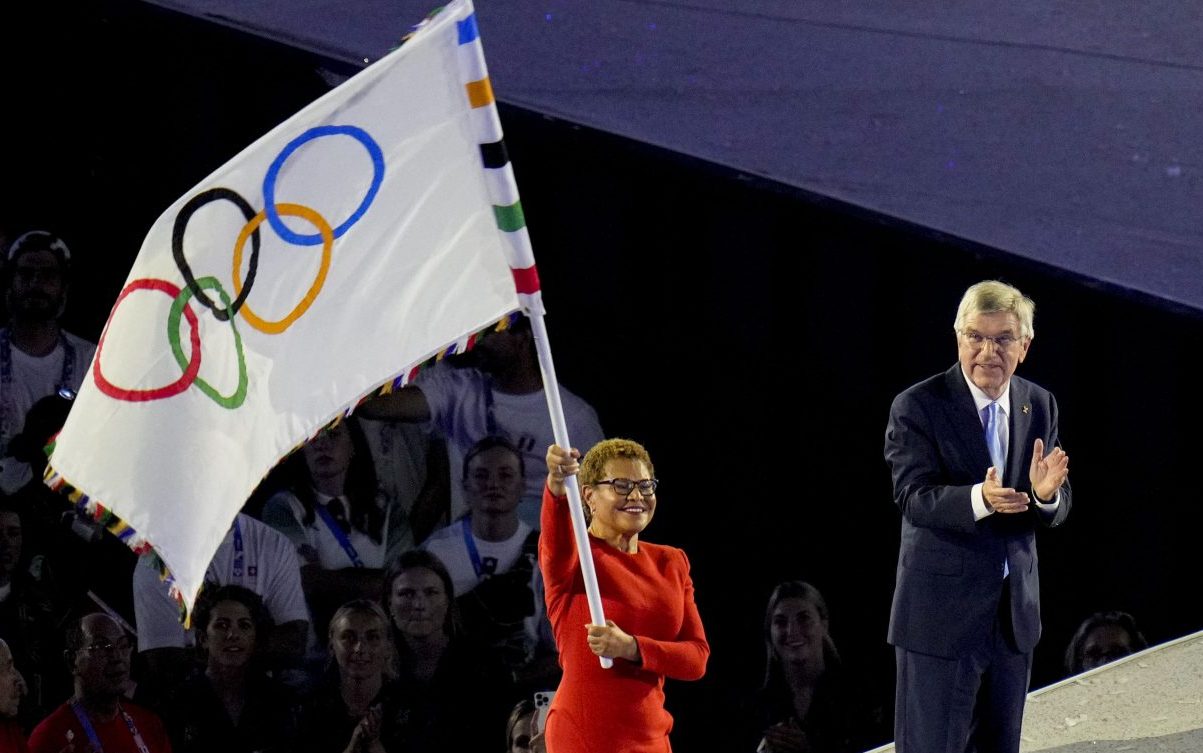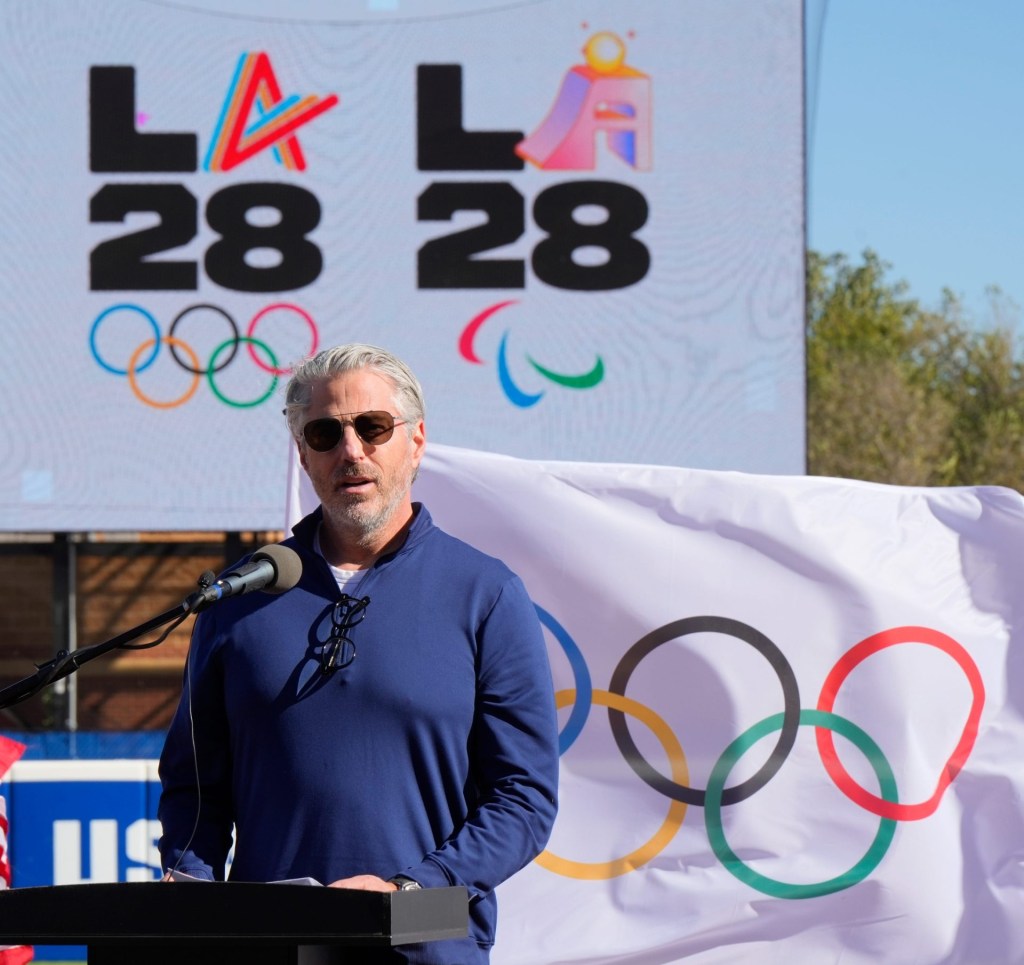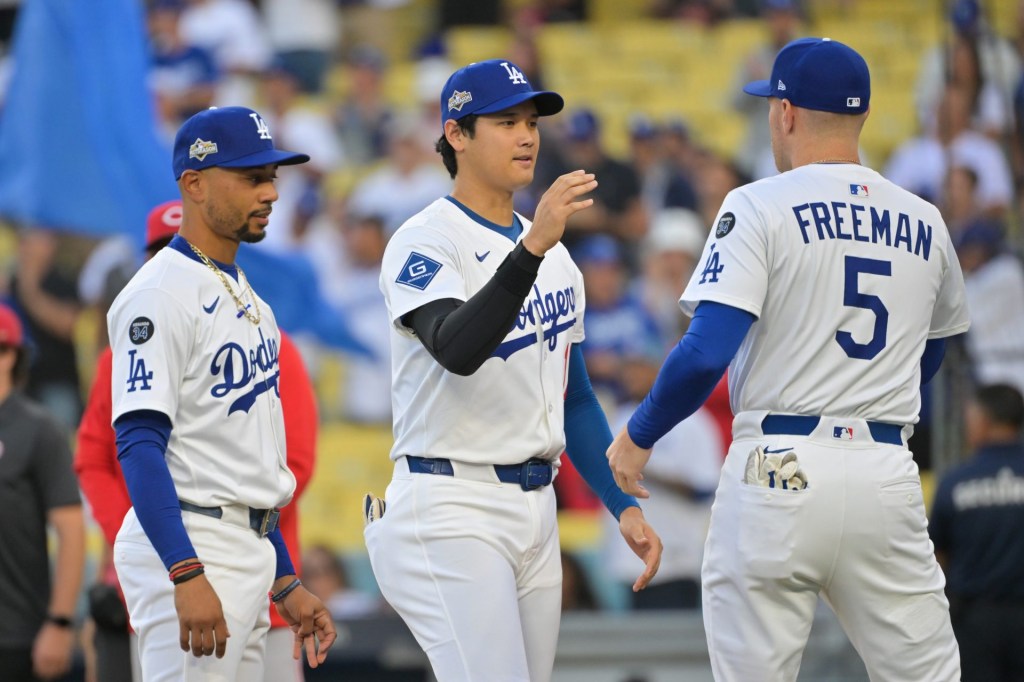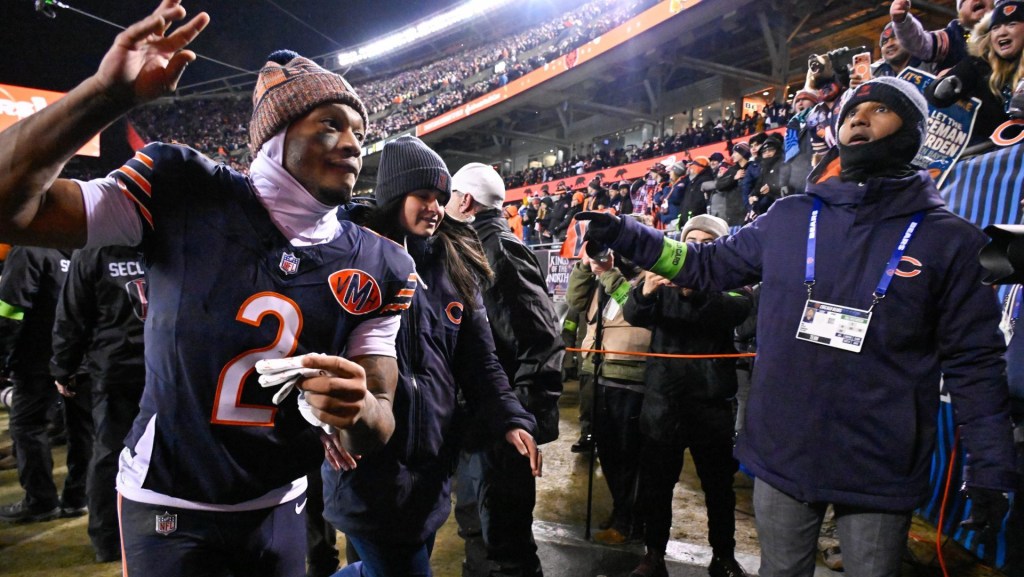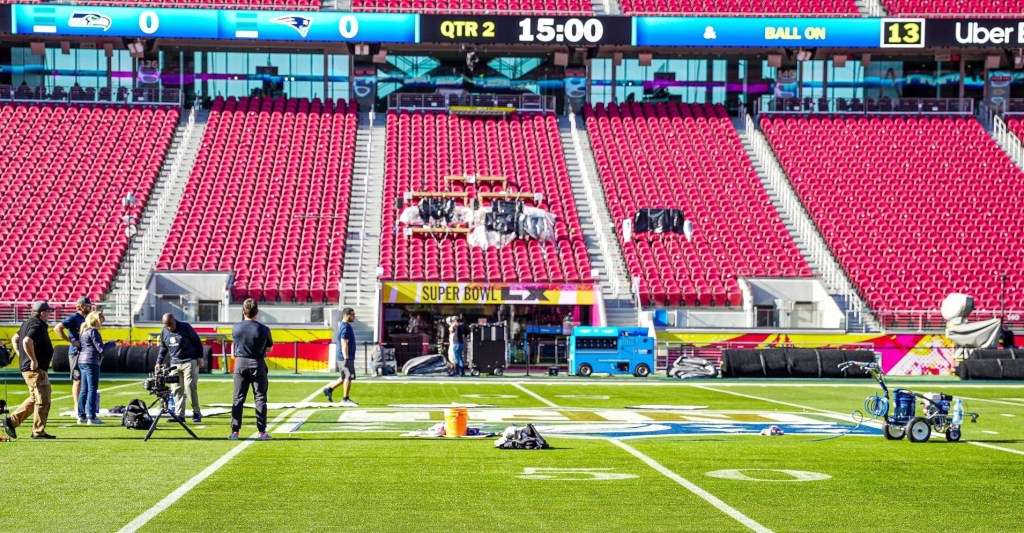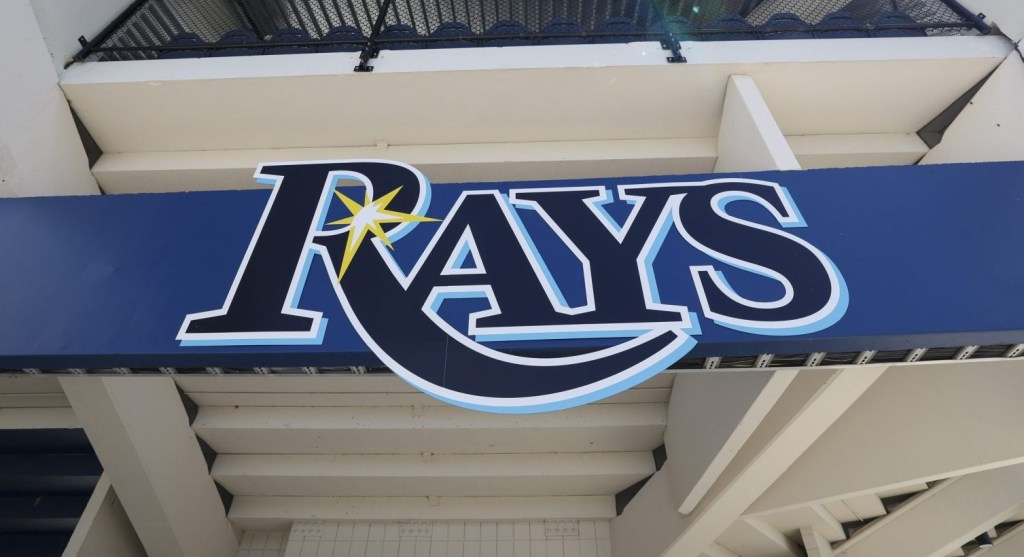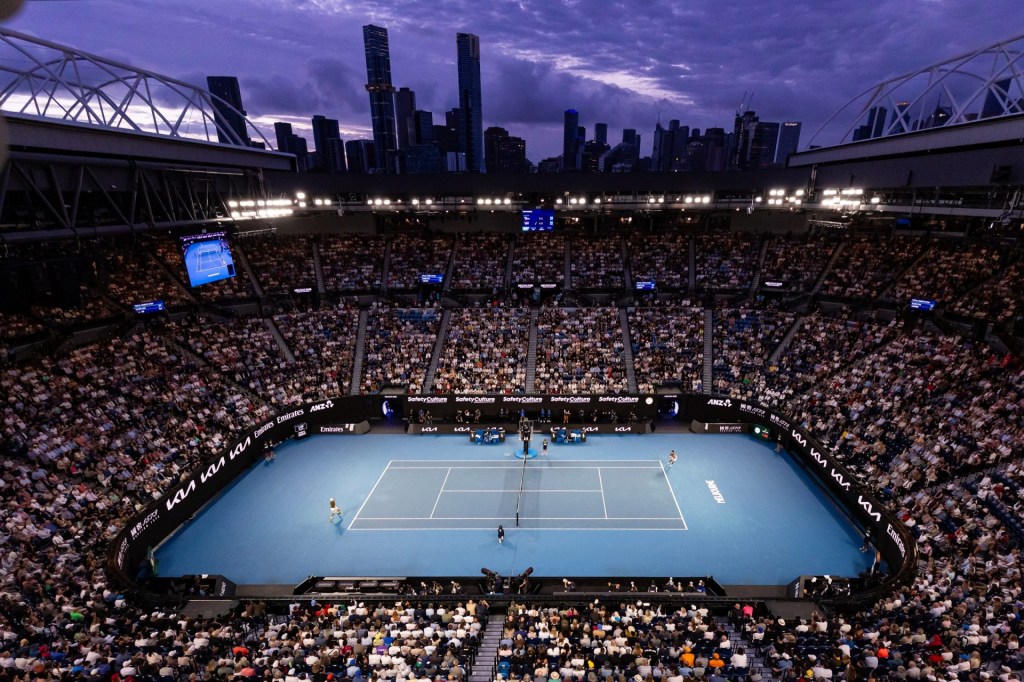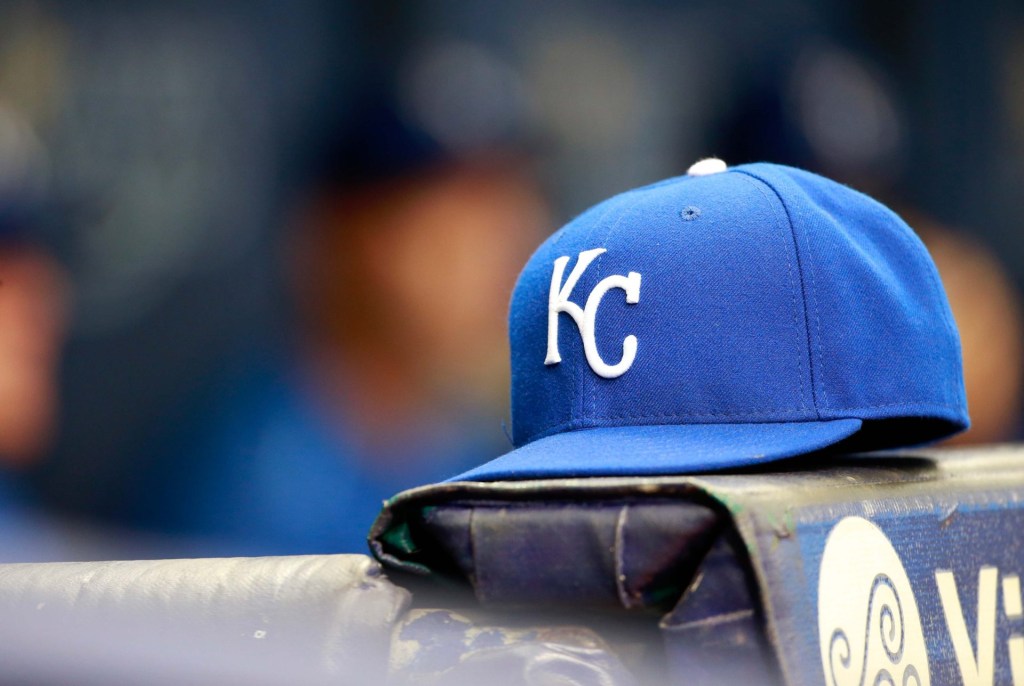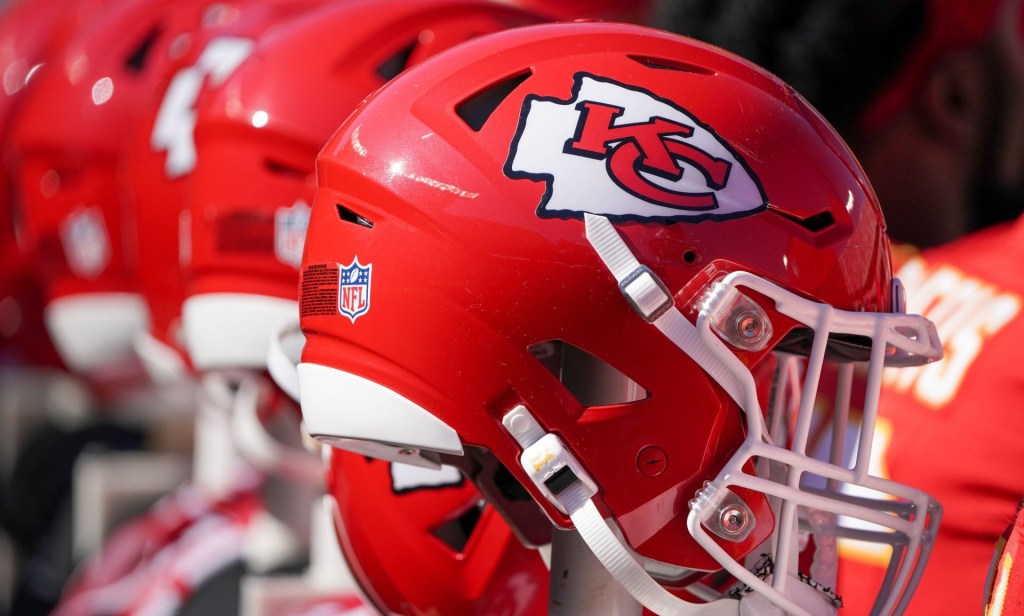Now officially on the clock for the next Summer Olympics, Los Angeles 2028 organizers and local politicians want to use the Games as a moon shot of sorts for the region.
Los Angeles mayor Karen Bass (above, left) was on hand in Paris on Sunday for the formal Olympics handoff from her Paris counterpart, Anne Hidalgo, marking a historic ceremony involving the first female mayors in both cities. As Los Angeles now moves from an Olympics planning phase to a delivery stage, Bass is envisioning a “no-car Games”—a massive shift for one of the most notoriously car-oriented and traffic-clogged cities in the world.
“That’s a feat in Los Angeles. We’ve always been in love with our cars,” Bass said. “[But] a no-car Games means that you will have to take public transportation to get to all the venues.”
The bold goal from Bass and other local leaders—somewhat mirroring the effort in Paris to clean up the Seine river—involves several key facets:
- Buses: Los Angeles intends to use more than 3,000 buses to transport people around the region for the Olympics, with many of those vehicles borrowed from other parts of the U.S.
- Workforce shifts: Area businesses, particularly large-scale employers, will be approached to consider work-from-home modifications, staggered schedules, and other shifts for staff to help mitigate the potential for traffic jams. Similar approaches were used during the 1984 Olympics, also held in Los Angeles, and now have the benefit of the internet and further learnings from the COVID-19 pandemic.
- Public transportation upgrades: The Paris Olympics succeeded in part by leaning heavily on a well-established Metro system that tapped into local cultural norms of using public transportation. Los Angeles will seek to establish a flavor of that with upgrades to the city’s more limited rail system, the downtown convention center, and Los Angeles International Airport, while also setting up temporary satellite parking venues to help expand the bus network.
“As we’ve seen here in Paris, the Olympics are an opportunity to make transformative change,” Bass said. “It’s our top priority to ensure that the Olympic preparations benefit Angelenos for decades to come.”
Historic Precedent
While many prior Olympic hosts, including Paris, have used the event to seek local enhancements, there is a prior track record of Los Angeles using the Games to its advantage. The 1932 Olympics proved influential in elevating an arguably sleepy Western U.S. town to the global stage, and helped fuel a population and development boom that ultimately led Los Angeles to become the No. 2 metro area in the country behind New York—while also marking a major turning point for the Olympic movement.
The 1984 Games, meanwhile, again helped revive the Olympics amid rising global conflict, turned a profit without state funding, and prompted upgrades to many of the existing sports venues in Los Angeles.
“Angelenos were terrified that we were going to have terrible, terrible traffic [during the 1984 Games], and we were shocked we didn’t,” Bass said. “But I will tell you, in 1984, we didn’t have any of the technology we do today.”
Ticket Ambitions
The LA28 organizing committee aims to surpass the record total of more than 9.5 million tickets that Paris sold, boosted in part by the addition of flag football, squash, lacrosse, baseball, softball, and cricket to the run of competitions in four years.
“We have the opportunity to sell significantly more tickets than Paris did,” said Casey Wasserman, LA28 chairman. “We don’t have an Eiffel Tower, but we’ve got a Hollywood sign, [and] we’ve got incredible venues.”
